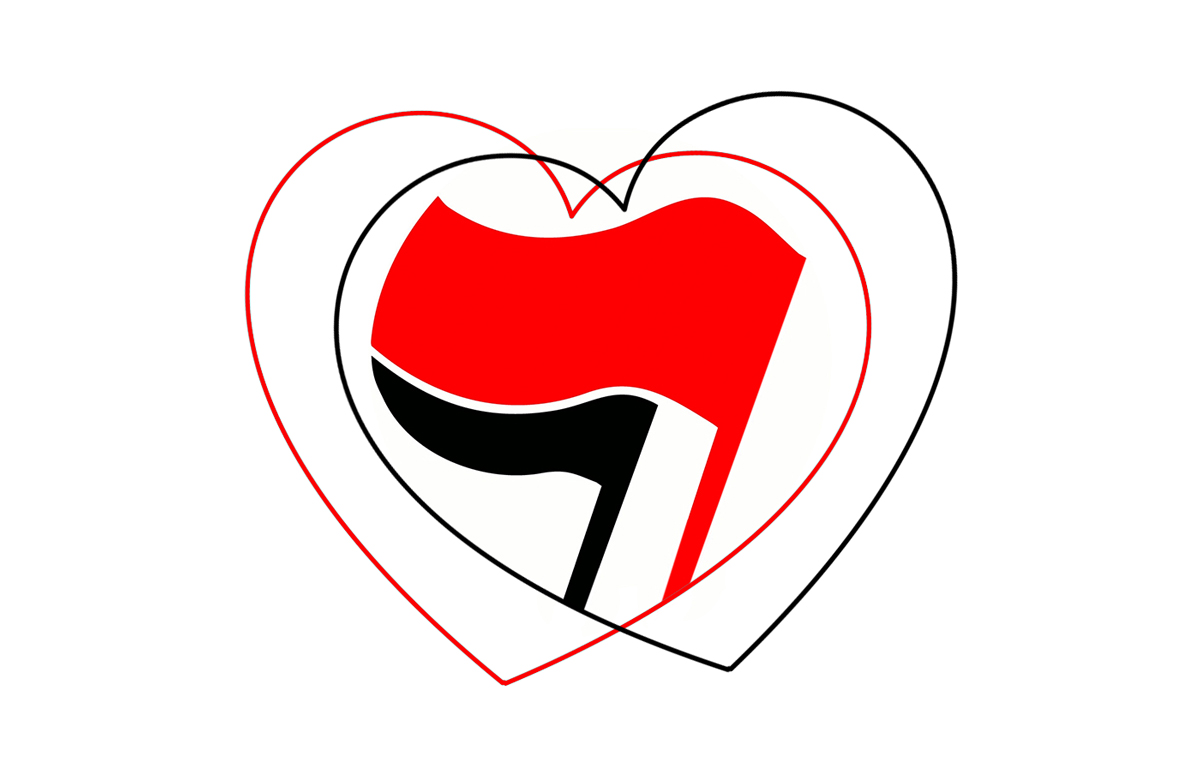“You had a group, you had a group on the other side,” he said, referring to those gathered to protest the presence of white supremacists and national socialists in Charlottesville, “that came charging in without a permit, and they were very, very violent.” And with that, Donald Trump jumped from the rhetorical staging ground of bothsiderism into the condemnation of counterprotesters as violence without permission.
Having described the evening’s torch-wielding parade of neo-Nazis and white supremacists chanting “Jews will not replace us” and “blood and soil” as “people protesting very quietly”—where those same torches were used to beat a small group of students who stood holding a banner against white supremacy—Trump only used the word “violence” to refer to the actions of those gathered to protest the presence of groups such as the Klan, American Vanguard and the Traditionalist Workers’ Party—all openly white supremacist and neo-Nazi groups. As it happens, the counter-protesters did have permits to rally nearby; and the permission granted for “Unite the Right,” extracted through court action with the support of the American Civil Liberties Union, was overturned by the city within moments of the gathering.
But Trump’s remarks were not about these details, not the course of events, nor the trees felled to issue and retract permits but, instead, constituted an attempt to rebuild the forest of permitted, “free” speech and action within which liberals might further wander in a stupor, and fascists can continue to cultivate their dream of forever silencing those who they regard as subhuman. One does not have to read Max Weber to know that this is not about the use of force in the abstract. If it were, then Trump would have renounced every kind of violence, right up to and including that of the military and police.
To the contrary, then, the issue here is the assignment of legitimate, permitted violence. The far Right nationalists “were there,” Trump insisted, “to innocently protest and very legally protest” against “changing history, … changing culture”—that is, the removal of statues honoring those who fought a war against the abolition of slavery, most of which were erected during Jim Crow and, later still, in opposition to the civil rights movement. And, if there were still any doubt about the connections between the White House and these groups, Trump complained that, like Bannon, “the press [had] treated them [both] absolutely unfairly,” and “frankly very unfairly.”
The conflicts over the abolition and restoration of slavery are central to this, just as they are to the history of antifa. And while liberals, and far too many socialists, continue to separate questions about labor and economics from civil rights and equality, perhaps we need a reminder that antifa emerged from a left communist milieu for whom capitalism is the extraction of surplus, unpaid labor. In this sense, capital is the yield of slaveholding that persists, beyond the formal abolition of slavery into the discriminating taxonomies of classification, or class. It is not, I think, happenstance that questions about Charlottesville interrupted the signing of a new Executive Order to “dramatically reform the nation’s badly broken infrastructure permitting process,” one in which Trump suggested that the return of millions of jobs in manufacturing would make “race relationships” better. The granting of permission (who can move legitimately, what can move, and through what kind of infrastructure) and the restoration of the productivism of a “real economy” are interlocking, nostalgic circuits.
Nor is it trivial, in that sense, that Trump asked whether, since he was a slave-owner, “George Washington [will] now lose his status.” Status implies a natural qualification, one that is deemed to be inherent and heritable, much like property and biological-cultural concepts of race. Trump’s use of “fine people” and “high quality person” is a tacit reference to heritable, biological “stock.” And like the periodic return of Confederate statues across the United States, there have been recurrent efforts to anchor the legitimacy of the extraction—and claims to ownership—of surplus labor in presumably natural foundations. Oftentimes, that includes the doctrine of “natural scarcity” which, for its proponents, rationalizes the exclusion and elimination of a “surplus population.” For fascists, this is the teleology of the internment camps. This teleology is why anti-fascists have always confronted premises and not merely waited for consequences to unfold, have committed to challenging every appearance of fascism, however small or large the gathering.
Antifa is indeed a set of self-defense tactics. The circumstance of self-defense does not require permission from those who permit the attack with a wink or through bluster. But anti-fascism is also a real movement to abolish the slavery that persists at the base of capital, including those concrete foundations on which statues to slave-ownership were built.
